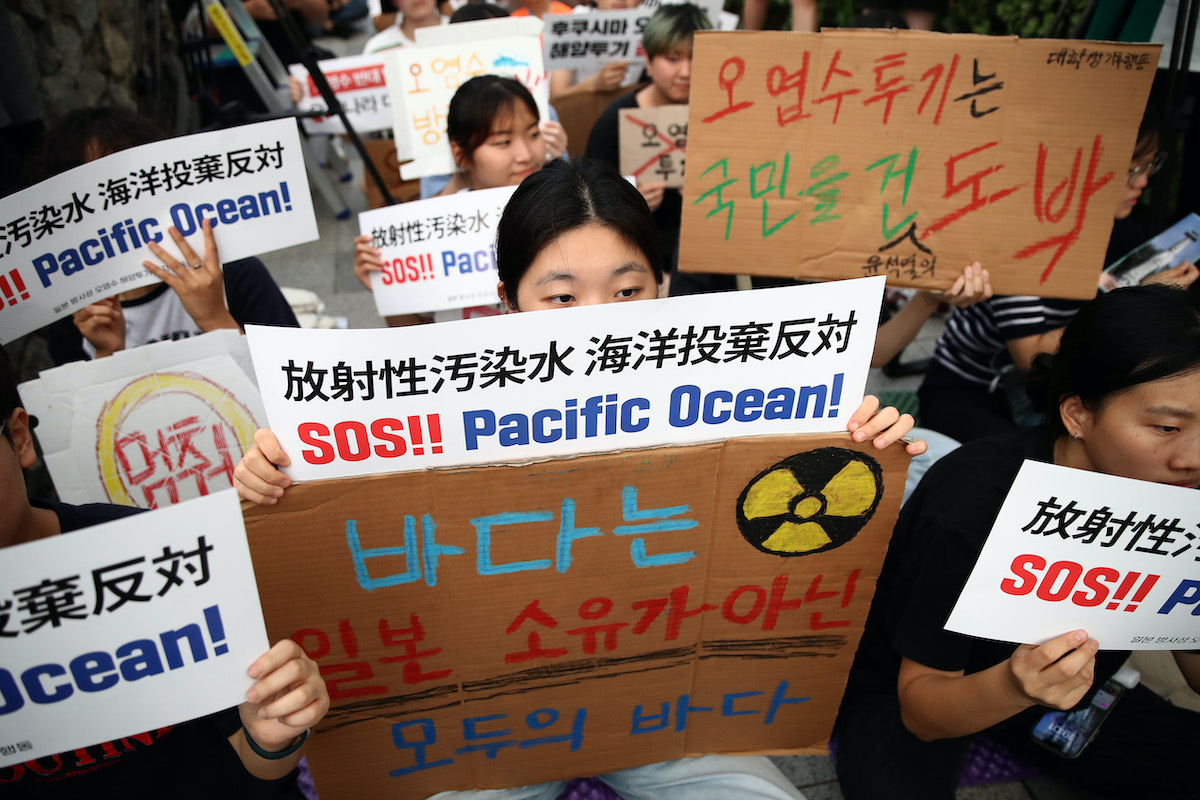Protesters Angry About Japanese Government’s Decision To Release Fukushima Waste Water

Japan has started releasing radioactive water from its Fukushima power plant, sending the water into the Pacific Ocean. In 2011, an earthquake and a tsunami damaged the nuclear power plant, which messed up the cooling system. The overheating then contaminated the water from the facility with material that is very radioactive. Every day, the plant has been producing a lot of contaminated water, which is stored in tanks. There’s enough water in these tanks to fill over 500 Olympic-sized swimming pools.
But now, Japan says they need the area where these tanks are to build new facilities that would be used to decommission the plant. The International Atomic Energy Agency (IAEA) has ‘greenlighted’ the move to release the water gradually into the ocean. It is believed that the whole process could take about 30 years. Perhaps the most controversial part of this is that all of the contamination cannot be separated prior to it being dumped into the Pacific. A radioactive element, called tritium, cannot be removed because there is no technology able to do that. Instead, the water is just diluted.
The United Nations is monitoring this process. The IAEA, which is part of the UN and was mentioned above, greenlit Japan’s actions. They issued a report in July stating that their activities in relation to the water were “consistent with relevant international safety standards”. Furthermore, they claimed there would be “negligible radiological impact” on the environment as well as people. While they think that the impact isn’t substantial, they will continue to monitor the situation. They are providing data on flow rates with the water and radiation.
While the UN has officially approved this ocean-pouring, not everyone is pleased. The day that Japan started releasing the water in the Pacific Ocean, over a dozen protesters, mostly young people, were arrested in South Korea after they entered a building where the Japanese embassy in Seoul is housed. They reached the floor of the embassy and hung banners with messages condemning Japan’s decision to release the water. One of the banners translated to “The sea is not Japan’s trash bin.”
There have been thousands of other protests and prank calls. It has gotten so bad that the Japanese Prime Minister Fumio Kishida has urged China to stop what the AP calls “acts of harassment.” Kishida has called these incidents “regrettable.” Despite claims of safety from the UN, China immediately banned all imports of Japanese seafood as soon as the country learned of Japan’s decision.
China’s reaction is being cast by many as a disinformation campaign meant to cause mistrust and discord. To whatever degree that may be true, it seems like there are also plenty of protests happening within Japan itself, especially by fishing groups but also other people who are concerned about this process, which again, will last decades.
(featured image: Chung Sung-Jun/Getty Images)
Have a tip we should know? tips@themarysue.com